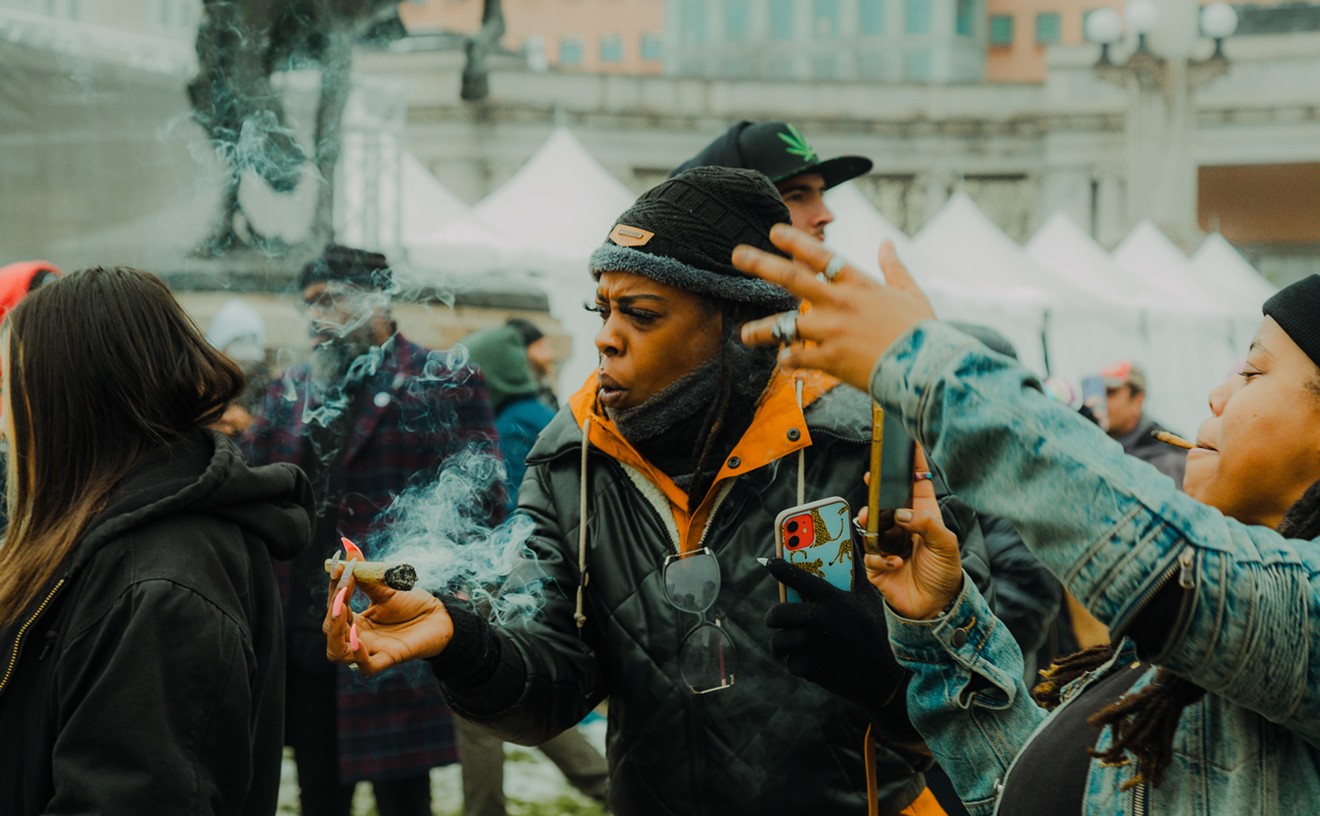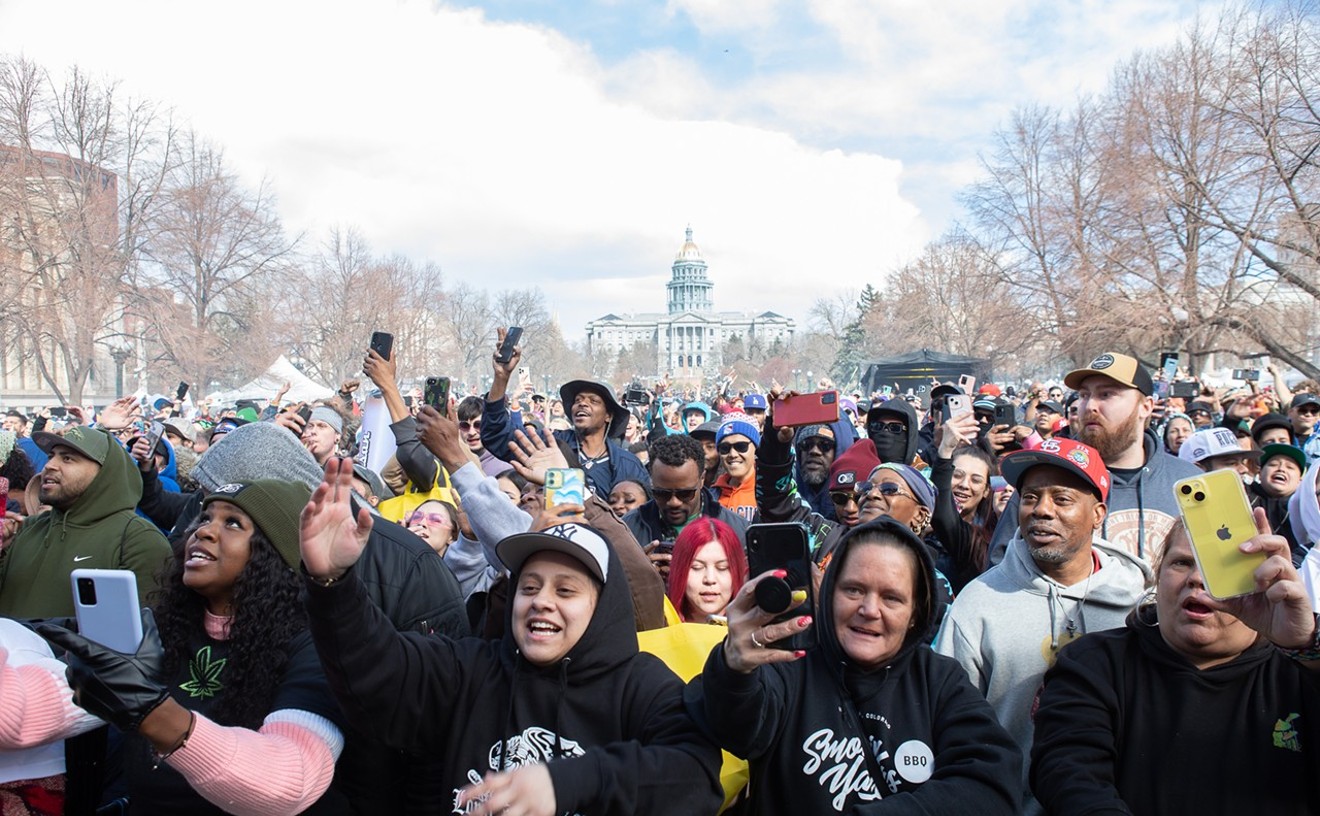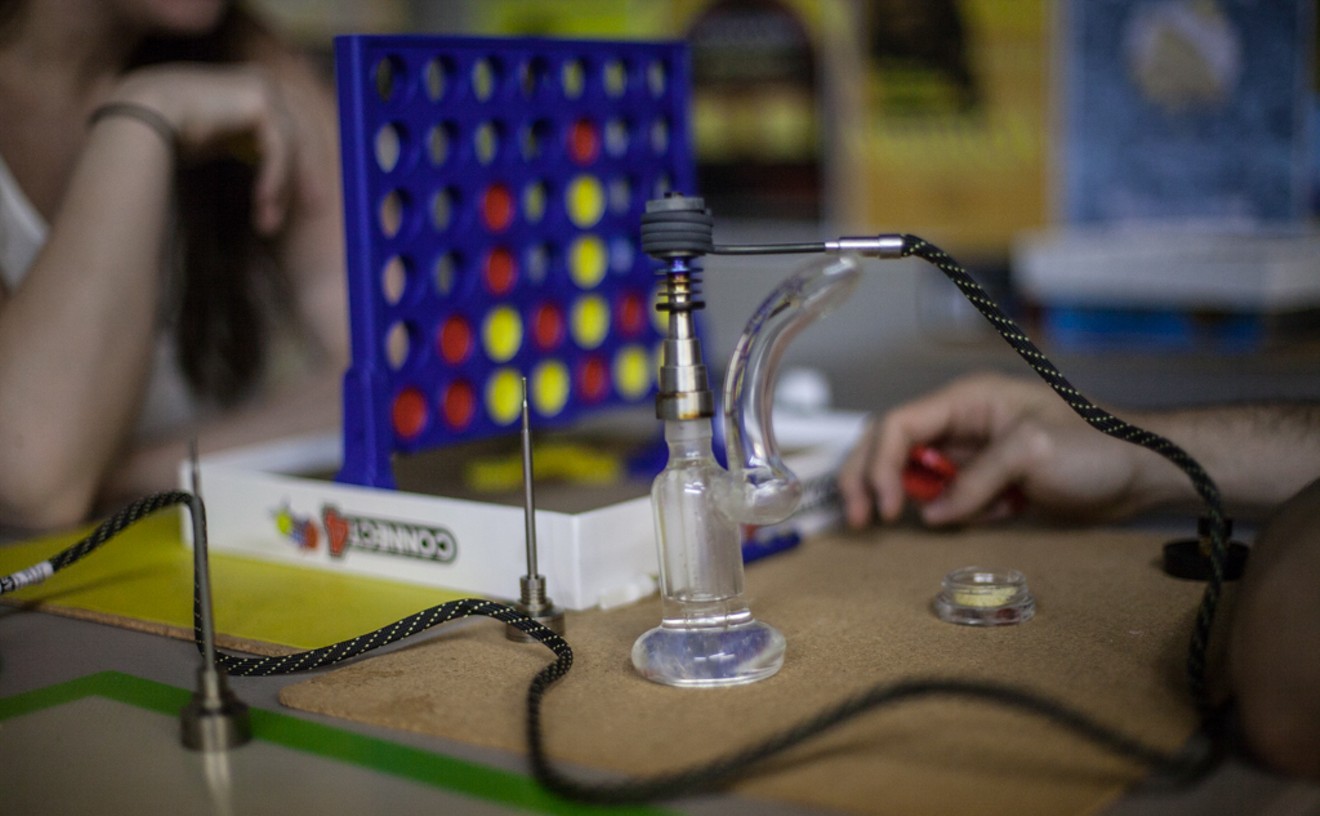Cannabis consumers in Nevada thought they were handed a small victory earlier this week, after the state's Legislative Counsel Bureau released an opinion saying that no state law prohibits local governments from permitting pot consumption in businesses. That optimism was quickly diluted by Nevada Governor Brian Sandoval, however, who said he's opposed cannabis-consumption lounges from the beginning of legalization talks and will continue to do so. Nevada voters approved legalizing recreational marijuana in November 2016.
The conflicting stances between government branches and business owners and cannabis advocates is nothing new in Colorado, which has a four-year head start on Nevada with recreational cannabis — but has yet to figure out its own social-consumption issues. Denver is currently the only municipality in Colorado with a program for businesses to apply for social-consumption permits, but the original backers of Initiative 300, which Denver voters passed last November, have accused the city of bastardizing I-300's intentions with harsh location restrictions. They've threatened to sue if changes aren't made.
Consuming cannabis in public is illegal in Colorado, thanks to a sentence in Amendment 64 (the proposal voters approved in 2012, legalizing recreational pot) that says consumption may not be done "openly or publicly" – a phrase that many of 64's supporters wish they could take back. The result has been a state with over 600 dispensaries that's largely devoid of anywhere for people to smoke outside of their own homes.
"City and state officials have decided to interpret such language as restrictively as possible. It was absolutely not the intention of Amendment 64 to prohibit social use, but rather to leave it up to cities/counties to decide," says Emmett Reistroffer, a cannabis business consultant and drafter of Denver's social-use initiative. "What I think it was intended to be was that Amendment 64 didn't legalize cannabis to be consumed on a public sidewalk or in a public park."
Reistroffer and Denver entrepreneur and mayoral candidate Kayvan Khalatbari have been battling with city officials since Denver's social-use application program officially started August 24, taking issue with the changes made to their social-consumption initiative. Now, in order to be approved for a social-consumption area permit, a Denver business must be 1,000 feet away from any school, child-care establishment, drug or treatment facility, and city park, pool or recreation center.
Three weeks after opening the application process, the city still hadn't received any applications, but that hasn't surprised the Denver Department of Excise and Licenses, the agency overseeing the program. "We have heard from several parties who are intending to do so. We don’t expect to receive any applications for a while, because folks are still negotiating leases and getting their ducks in a row," says Dan Rowland, director of public affairs for the Department of Excise and Licenses.
Reistroffer, who's used to taking two steps forward and three steps back in his fight for social consumption, says he's happy for consumers and business owners in Nevada, but after speaking with insiders in Nevada, he believes that state's social-consumption progress reports may be a little overblown.
"I think people there are happy but still optimistic," he says. "The news is making it seem like cannabis clubs can open in Las Vegas tomorrow. Basically, what happened is a senator asked Nevada's legislative review board to look at the issue, and they did a review. The local cities and counties will still have to approve an ordinance to permit such types of establishments.... However, I think it will take another three to six months before anything is official. And then after that, it could take another six to twelve months before anyone obtains such a permit."
But with Nevada's governor publicly opposing the Legislative Counsel Bureau's opinion just one day after it was issued, that estimate might stretch a lot longer. “I think it’s way too early to be doing something like that,” Sandoval told the Las Vegas Review-Journal.
Despite the current uncertainty, Nevada still might have an easier path toward consumption lounges or areas, Reistroffer believes. "The Colorado Clean Indoor Air Act limits social consumption quite a bit. It's one of our biggest barriers," he says. "When it was passed in Colorado and other states with similar bans, it was entirely about tobacco smoke. I doubt the word 'cannabis' ever came up." Since recreational cannabis was legalized in Colorado, the Clean Indoor Air Act has been amended to include cannabis.
Nevada also has indoor smoking bans, but they're less restrictive. "It has much broader exemptions. That's why you can smoke in casinos, bars and gaming establishments, but not restaurants," Reistroffer explains. "Ideally, I think cannabis should be sold at the same place you consume; that way, the establishment could regulate how much you're using."
[
{
"name": "Air - MediumRectangle - Inline Content - Mobile Display Size",
"component": "12017618",
"insertPoint": "2",
"requiredCountToDisplay": "2"
},{
"name": "Editor Picks",
"component": "17242653",
"insertPoint": "4",
"requiredCountToDisplay": "1"
},{
"name": "Inline Links",
"component": "18838239",
"insertPoint": "8th",
"startingPoint": 8,
"requiredCountToDisplay": "7",
"maxInsertions": 25
},{
"name": "Air - MediumRectangle - Combo - Inline Content",
"component": "17261320",
"insertPoint": "8th",
"startingPoint": 8,
"requiredCountToDisplay": "7",
"maxInsertions": 25
},{
"name": "Inline Links",
"component": "18838239",
"insertPoint": "8th",
"startingPoint": 12,
"requiredCountToDisplay": "11",
"maxInsertions": 25
},{
"name": "Air - Leaderboard Tower - Combo - Inline Content",
"component": "17261321",
"insertPoint": "8th",
"startingPoint": 12,
"requiredCountToDisplay": "11",
"maxInsertions": 25
}
]













